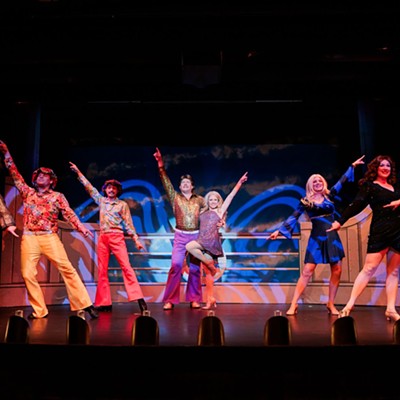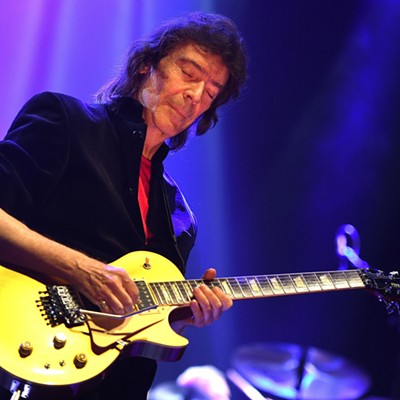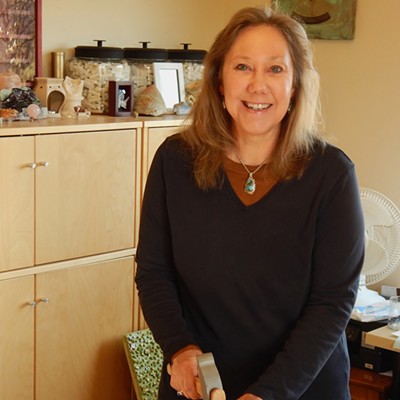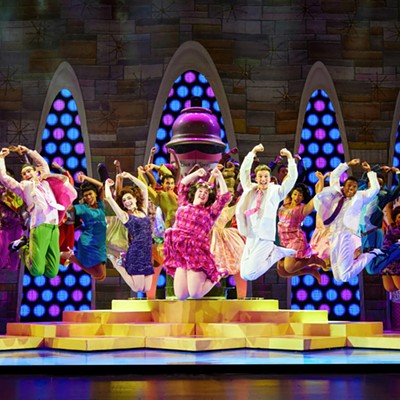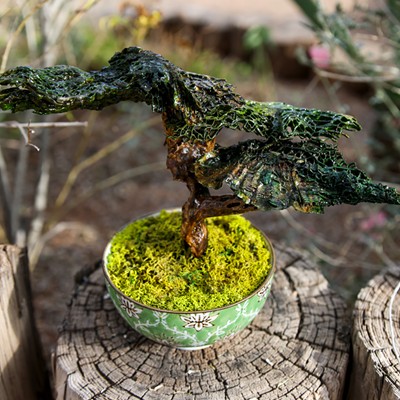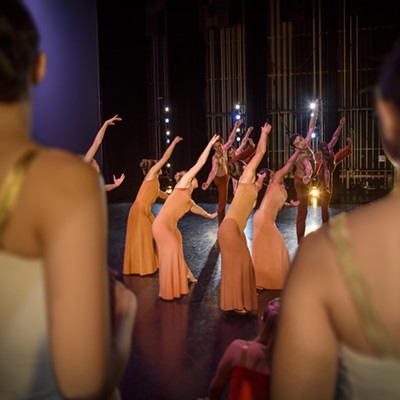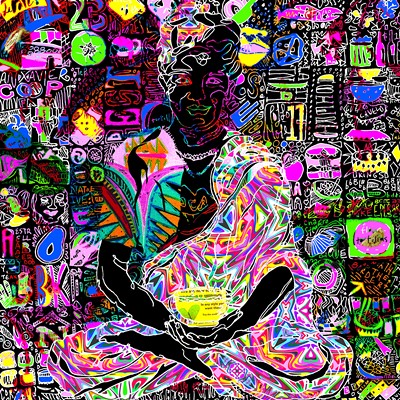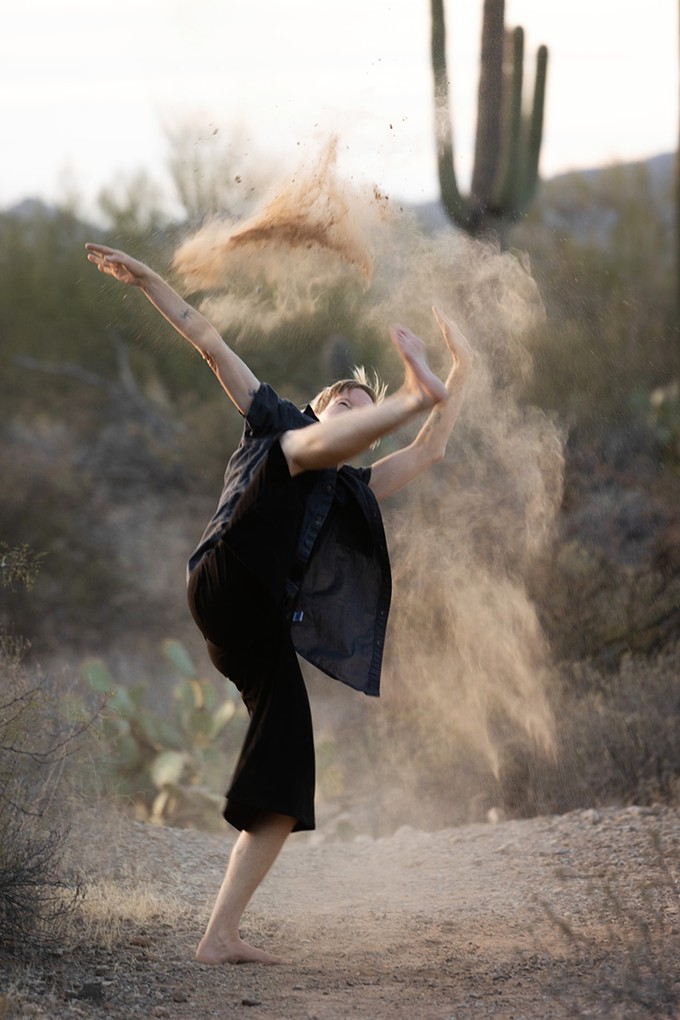
Movement artist, curator, writer and facilitator Haas is interested in how anger manifests in the body and is policed by societal constructs meant to control that emotion.
Through their Anger Project workshops and events, they are trying to provide a platform for others to express and work through their anger in different ways.
In March, the Anger Project will hold a series of events at the Catalyst Creative Collective. Many of them will be hosted by Haas, who is the March artist in residence.
Haas is also working with guest artists and facilitators.
Set for Saturday, March 9, Undercurrent-A Community Grief Workshop was created and will be facilitated by Maria Renée Johnson. The Sunday, March 10, OUTCRY Scream Workshop was conceived of and is led by Whitney Bradshaw.
The events include a smashing workshop on Thursday, March 7, a performance on Sunday, March 10, a workshop series from Saturday, March 16, to Sunday, March 17, and a workshop and DJ dance party on Sunday, March 31.
Attendees are required to RVSP for the workshops, as space is limited. The workshop showing and dance party are open to the public.
The Anger Project has received funding from the Arts Foundation for Tucson and Southern Arizona and the Arizona Commission on the Arts.
Haas said through the project, participants can explore and work through not only anger but other related emotions.
“I think it’s a really important project. I think it’s a really transformative process… It is really important to healing, creating community spaces that do have really clear boundaries, where people have opportunities to express these things and to move through them. Another part, too, is it isn’t just about anger either. Anger is a tipping-off point… I chose anger because that’s so often been used against me to shame and silence me,” Haas said.
Haas has a background in dance, but they have also worked as a family support counselor for foster kids, as a caregiver and in drug rehabilitation centers.
They have also built a tiny mobile house on wheels and used it as a performance space. In Northern Arizona, they operated Rosie’s Ranch, an art residency and retreat space, from December 2015 to January 2021.
March 10 is the Anger Project’s debut public performance. It will feature movement-based work, directed by Haas and created and performed by Debby Urken, Haas and Helen Lee.
Haas will also be showing portions of two films, which they refer to as “visual podcasts.”
“Each visual podcast is right around 15 to 20 minutes, but you’re only going to see bits and pieces of those films,” Haas said. “Each visual podcast highlights someone’s anger story through movement and conversation.
“There is one for Helen Lee, who is an artist who lives in Chicago who went through one of the Anger Project series workshops, and then there’s one for me… So, you’ll basically see two different stories being highlighted, bits and pieces of the stories, as people are also moving onstage.”
The performance will deal with heavier topics such as physical and sexual assault and suicide. Southern Arizona Center Against Sexual Assault crisis advocates will offer support and resources.
During the public showing and DJ party, the full-length visual podcasts will be shown.
As part of a series of Anger Project workshops led by Haas, participants can dance, write, scream, play, draw, smash items, share stories and sing.
“We engage in embodiment activities designed to bring us in deeper relationships with ourselves and one another. All of the workshops rely heavily on movement improvisation, writing, sharing and grounding exercises,” Haas said.
During the workshops, Haas will give prompts that encourage participants to think more deeply about anger. They will focus on topics such as the ways people were taught to engage or not engage with anger; how the expression or suppression of anger was conditioned by race, sex, gender identity, gender expression, class, religion or something else and the ways that participants feel anger in their bodies and the deeper needs tied to that emotion.
Haas said although they are not an expert on anger, they have been thinking and talking about it since they were in their mid-20s. They said that learning how to listen to, respect and honor their anger, and in turn their body, has been a lifelong practice.
Haas said that “anger is often pathologized, racialized, gendered, classed, deemed “unspiritual” and “lowly” when it is actually “one of our most revealing and powerful emotions.”
Haas said anger can alert us when something is wrong and can help us to move forward. It can also be a symptom of deeper traumas and can manifest when it is not acknowledged or expressed.
Haas said at the heart of the project is their desire to shift antiquated anger narratives, create spaces where anger is welcomed and celebrated, to learn and grow personally from it and to engage in meaningful conversations around the topic.
After the workshops, participants can share their work on a project website or performance events.
“The people who are part of these workshops can decide whether they want to remain anonymous or whether they want to present their work publicly if they want to bring their work into public spaces… There are so many stories that people won’t be able to hear or see, which I also think is important. I’m not going to bring other people’s stories into the public space unless somebody explicitly asks me to do that,” Haas said.
Haas had the idea for the Anger Project in 2005 and started to envision the project in 2017.
“Whenever I would talk to people about it, they would get so excited. We would have these long conversations about anger,” Haas said.
Haas hosted the Anger Project’s first small-scale pilot study from January through March 2019, and from January through June 2021, they put on forums and movement workshops in Northern Arizona and Texas.
The early workshops were small and by-invitation only. From the start, Haas wanted to provide as safe of a space as possible for participants.
Haas has always emphasized that participants are in therapy or have a therapist number handy for support, if needed. Others have told Haas the process was helpful.
Haas said that while they want to give others a platform to share their stories, they can share as much or as little as they like. Sessions are timed so that everyone gets the same amount of time to share.
“I take a lot from group therapy sessions that I was in in my 20s. You don’t give people feedback. You’re not trying to help anybody fix anything. There’s nothing to be fixed here. We’re really here to witness one another, and that’s it, and focus on our own stories,” Haas said.
Undercurrents-Community Grief Workshop
WHEN: 10 a.m. to 10 p.m. Sunday, March 3
OUTCRY Scream Workshop WHEN: 1 to 3 p.m. Sunday, March 10
Anger Project Performance Event
WHEN: 4 to 6 p.m. Sunday, March 10
AP Workshop Series
WHEN: Various times March 16 to March 31
AP Workshop Showing and DJ Dance Party
WHEN: 2 to 6 p.m. Sunday, March 31
WHERE: Catalyst Creative Collective, 4500 N. Oracle Road, Suite 110, Tucson
COST: Free Admission
INFO:
www.angerproject.org/events

